Ancient Egypt’s Most Interesting Discoveries We Know about the Pyramids

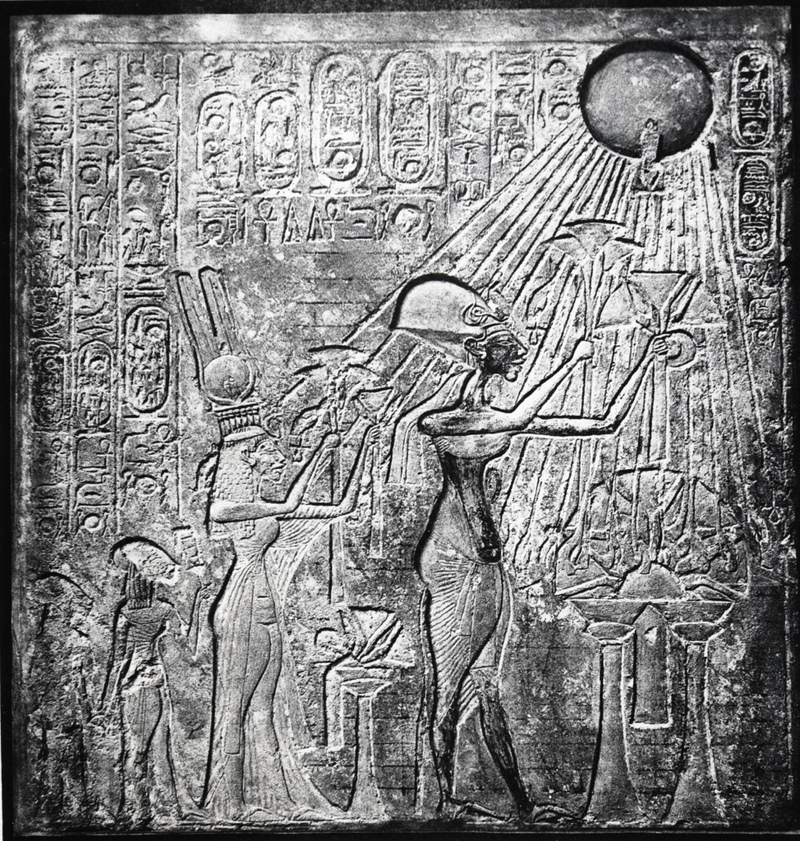
Given that some 4,700 years have elapsed since the Great Pyramid’s completion, the structure stands remarkably intact. Some believe that Ancient Egyptians had help from extraterrestrial beings, while others think they had tools and technologies more advanced than we ever imagined. Even today, many tombs remain to be excavated, assuring more amazing finds yet to come.
The Invention of The Wheel
It is claimed that the very first pyramid in Egypt was built around 4,700 years ago, during the Third Dynasty, when ancient civilization hadn’t yet discovered the wheel! That means that they had assembled these gigantic structures seemingly without using wheels for transportation. Now that is impressive!
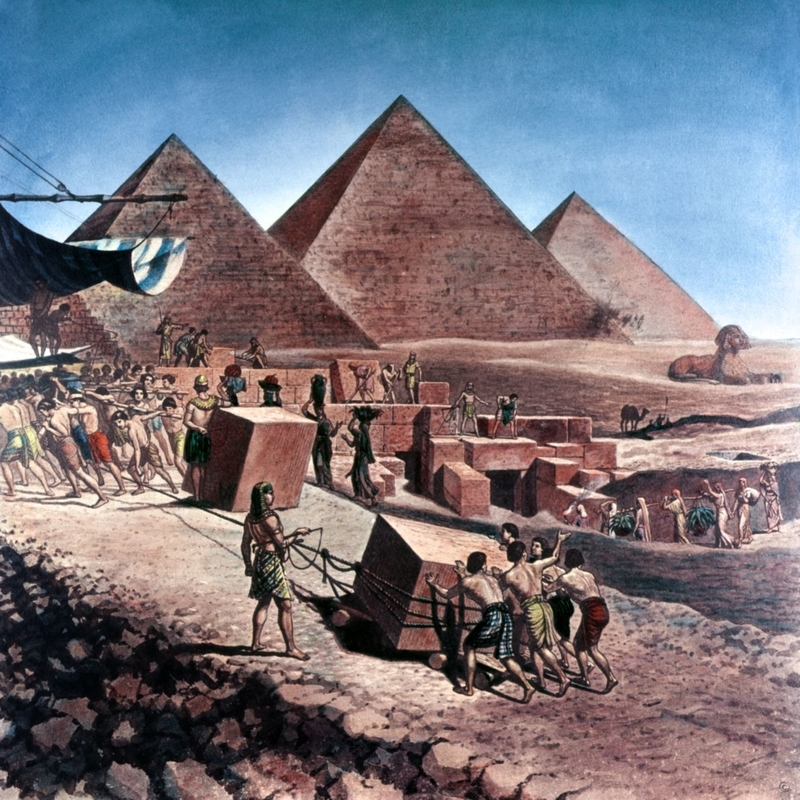
Because the pyramid was constructed using bulky granite and limestone blocks, there was no way they could’ve relocated them using wooden rails and ropes.
Who Built the Pyramids?
The only evidence scientists have from that period is that the Egyptians only had ropes and wooden ramps to build their structures and fortresses. According to calculations, in one day, they would have had to lay down a new block every two and a half minutes to finish the construction in 20 years!
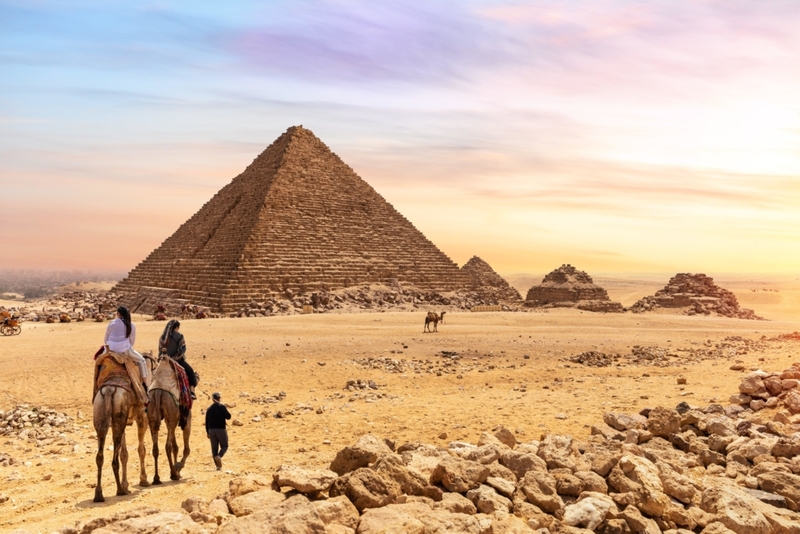
There is no concrete evidence of how the Egyptians build something so incredibly big and extremely precise. Therefore many historians, archaeologists, and scientists believe that the pyramids were built by a civilization that was even more advanced.
To Build The Pyramids
The largest pyramid and the most massive structure in the world is the Great Pyramid, built around 2550 BC, during Pharaoh Khufu's reign. Scientific research says it was built by 20 000 people, and it took them 20 years to complete it.
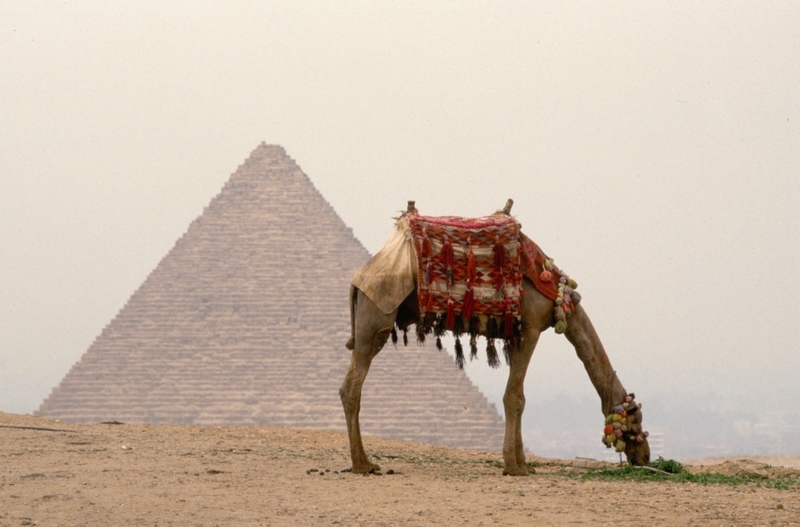
When we look at it through our modern perspective, it seems highly unlikely that the ancient people managed to build such a magnificent project only using wood and ropes—no wonder it took so long!
The Pyramids Used to Look Much Different
The Great Pyramid appears to blend with the sand and dirt surrounding it, but these pyramids looked utterly different back in the day. The surface layer was covered with shiny, white polished limestone, which made the pyramids shine.
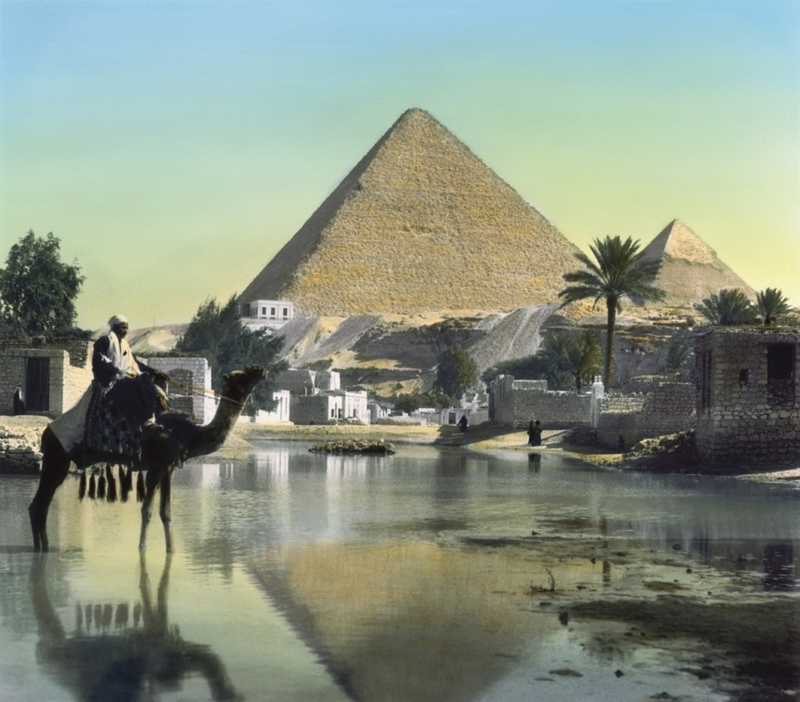
Sadly, there was a strong earthquake in 1303 AD that caused the limestone layer to loosen, so people had to take the surface stones off. Of course, these stones didn’t go to waste. They were reused for fortresses and other structures.
How Many Sides Does the Pyramid Have?
When you think of a pyramid, it's a geometrical shape with four sides. However, that's not exactly the case with the Great Pyramid. It may look like it has four sides when you look at it from the ground; the Great Pyramid actually has eight sides. If you were to fly over the pyramids in a plane, your perspective would change, and you would see that the pyramid does have eight sides, not four.
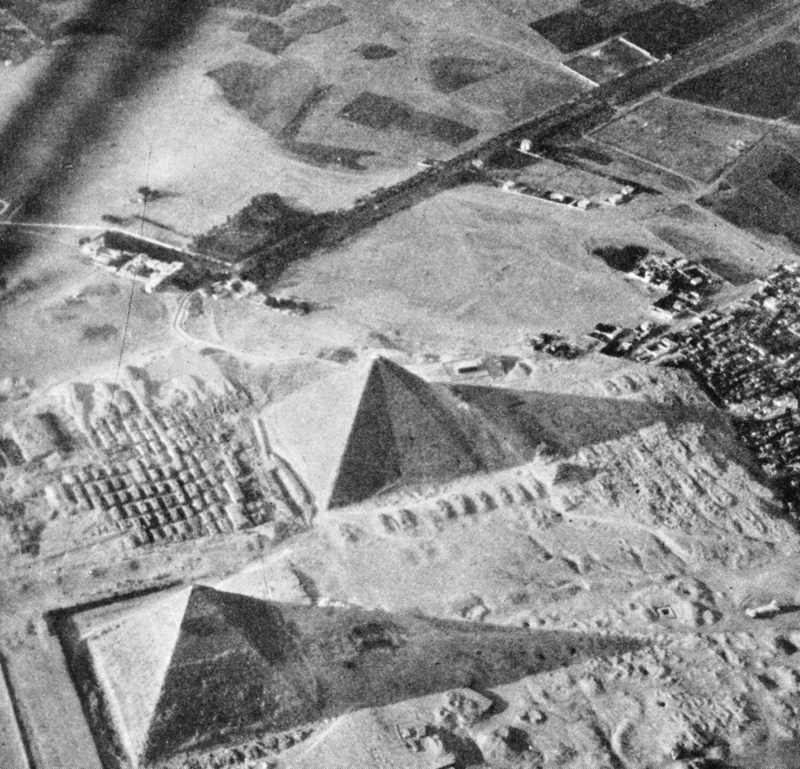
Some experts believe it was constructed this way to prevent the stones from shifting. Others believe that erosion from the wind caused the pyramid to split into eight sides. There is no evidence to prove either of these theories, but the sides seem so precise that it seems unlikely that wind could’ve made that happen.
Evidence of Advanced Tools
Scientists believe that ancient civilizations had more advanced tools than we believe; a significant piece of evidence was found in Khufu’s Sarcophagus. Archaeologists, who worked on this site, discovered the evidence of drills that were strong enough to drill through granite blocks. Khufu, who was behind the Great Pyramid construction, had a coffin that weighs over 3.5 tons.

The only rational conclusion is that the stone was brought to this place before. The sarcophagus stood separate from other blocks in a room inside the pyramid, with holes that had to be made by humans. Considering that it was made of granite, the block was way too dense to have been drilled with anything other than advanced tools, which supposedly did not exist at that time.
The Labyrinth Beneath the Pyramids
We already know about the intricate labyrinth underneath the pyramids, but we don’t know how long it is and where it can lead us. The sophisticated tunnel system is made from limestone bedrock, and some of the most notable archaeological discoveries were made in them. Even though archaeologists have dug quite far into these tunnels, they still haven’t scaled every corner nor found the end of the labyrinth.
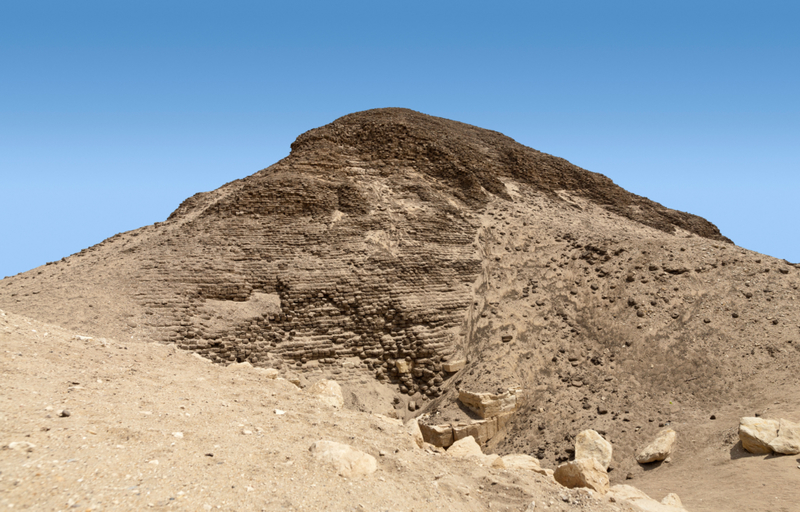
Conspiracy theorists maintain that scientists are keeping this underground world full of catacombs a secret from the public. All that we now know is that the labyrinths under the Great Pyramid stretch 55 miles south of Cairo, underneath Hawara.
A Mysterious Chamber?
One of the most recent findings inside the Great Pyramid was a hidden chamber. Archeologists were only able to discover the mysterious chamber using advanced technological imaging that record fragment particles deep within the rocks. They used cosmic-ray imaging, which is similar to X-Ray imaging, but it can penetrate farther into the pyramids' structure.
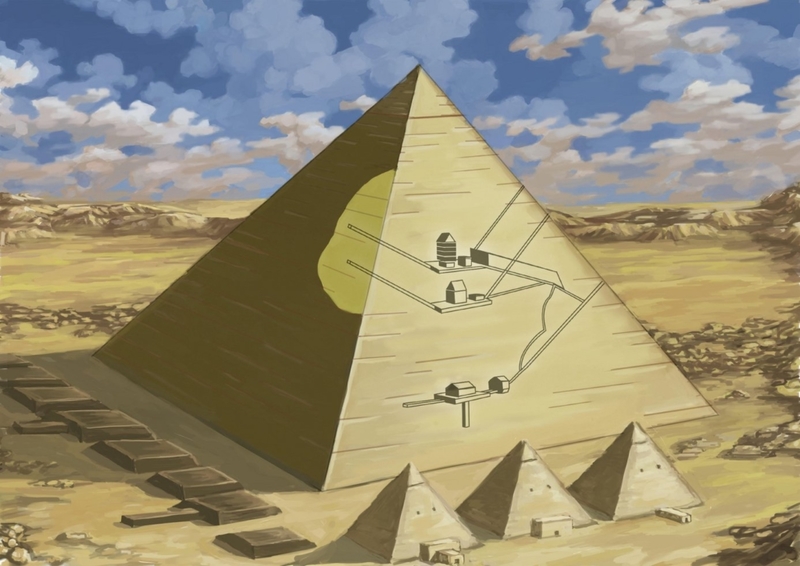
Even though this technology has significantly advanced, the images it provides are still low in quality and resolution. Therefore, scientists are still uncertain whether it is a single chamber or a different room series. They’re also not sure what the chamber was for, and whether something hiding inside it could show us an entirely new perspective about this ancient world...
On the Verge of New Discoveries
It has been hypothesized for centuries that the ancient pyramids could be generating some kind of energy. However, we still don't have any substantial evidence to lead us in the right direction to investigate this theory. After the Great Pyramid's hidden chamber was located, scientists also ascertained that the pyramid collects electromagnetic energy in its interior rooms.
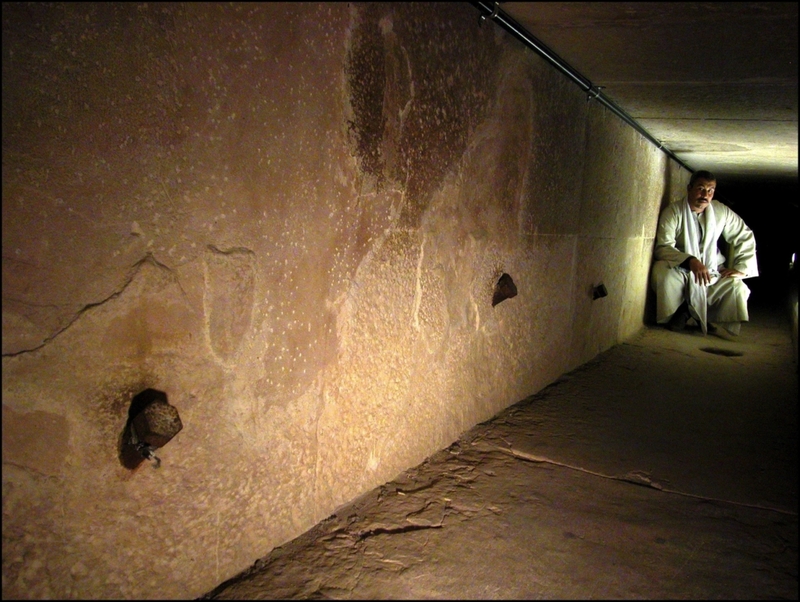
To make things even more interesting, the higher amounts of energy were recorded in the rooms where people found the remains of Pharaoh Khufu and his wife's chamber.
Discoveries From the Inside
On August 1st, 2018, archaeologists made one of the most recent discoveries when they found a precious statue during a restoration project. The statue was found inside the Djoser pyramid in Saqqara, and it depicted Osiris, one of the most well-known Egyptian gods. Archaeologists were baffled by such an unexpected discovery, as the statue was placed inside an unknown crack within the wall.

This discovery was so peculiar because no one could figure out why they would place such a cherished statue in a random spot within the wall. Did it have any meaning? Or was it hidden for some reason? The head of the Saqqara archaeological site speculates that “the statue was probably hidden in this way by a priest of Saqqara in antiquity.”
Mysterious Boxes Inside the Tunnels
Brien Foerster discovered one of the most enigmatic discoveries inside this tunnel; he found 20 boxes built from Aswan granite. These rocks were cut into boxes with staggering accuracy. What’s even more striking is that each box weighs around 100 tons. Some assumed that these boxes were a burial site for prized animals and livestock, yet no evidence has been found to prove this speculation.
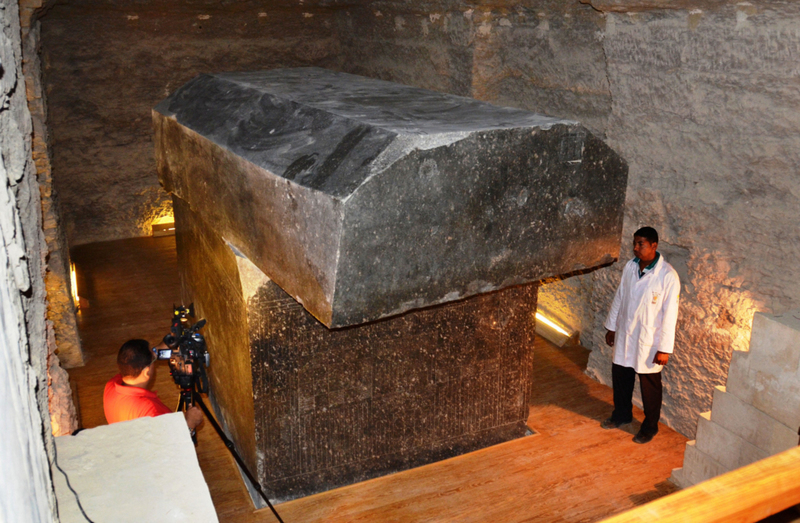
Some experts believed that these mysterious boxes also held some sort of energy. However, more established authorities seem to deny this view. We cannot know whether there is a chance of such a phenomenon, and we cannot be sure that the scholars tell us the whole truth. This is truly a mystery that makes you think.
Some Chambers Can Generate Heat
Scientists have now discovered that the giant pyramids emit heat from some rooms within the chambers while other sections remain cool. So, where could this heat be emanating from? The first hypothesis was that some kind of ancient technology could produce heat. Could this be, or is it merely an accident resulting from their construction?

The heat points were located in the upper half of the pyramid. Because of this, we can’t guarantee whether the heat is created from the sun reaching the upper half section of the pyramid or because there are more mysterious and undiscovered chambers.
Was the Great Pyramid a Power Plant?
History books will tell you that the Pyramids were exclusively used as cemeteries for pharaohs and kings. If this is true, why would they build such grand and impressive structures for no other purpose than laying their royals to rest? Some conspiracy theorists share a far more intriguing idea that the Pyramids were power plants and that the ancient Egyptians were an far advanced society who even had electricity.

Ultimately, there is definitive proof in etchings that depicted Egyptians holding torches that appear to be powered by electricity. And water flowing through the underground tunnels can create an electrical current. Scientific evidence also proves that the shafts inside the pyramid are crafted from slightly radioactive granite, ionizing the air, and creating an environment comparable to a conductive insulating cable.
Built With Air Shafts
While we're on the subject of shafts, the Great Pyramid was the only pyramid built with airshafts. Nevertheless, nobody can explain why. More importantly, these precise shafts align with the stars, which opens up a whole new set of mysteries. How did they succeed in creating such precise cuts without advanced tools? And what is the significance behind it?
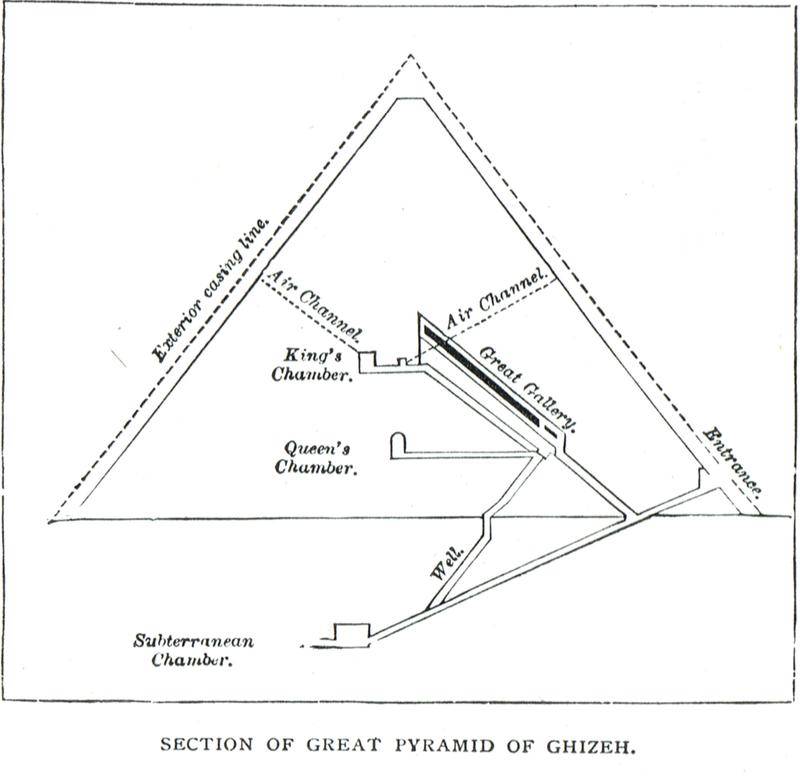
Some assume that the star alignment shafts has to do with sending the deceased to the afterlife. Some more radical conspiracy theorists suppose that these alignments might have been used to signal to aliens. But, not all shafts reach the external area as some were shut off for no apparent reason.
The Massive 20 Ton Pyramid Doors
Believe it or not, the doors entering the pyramid weighed 20 tons, and, even more surprisingly, you could open them with a single push. No human can push a heavy 20-ton door open just like that unless we're talking about the pyramid doors. These doors were constructed with such a precise balance that you could easily push them if you wanted to enter.
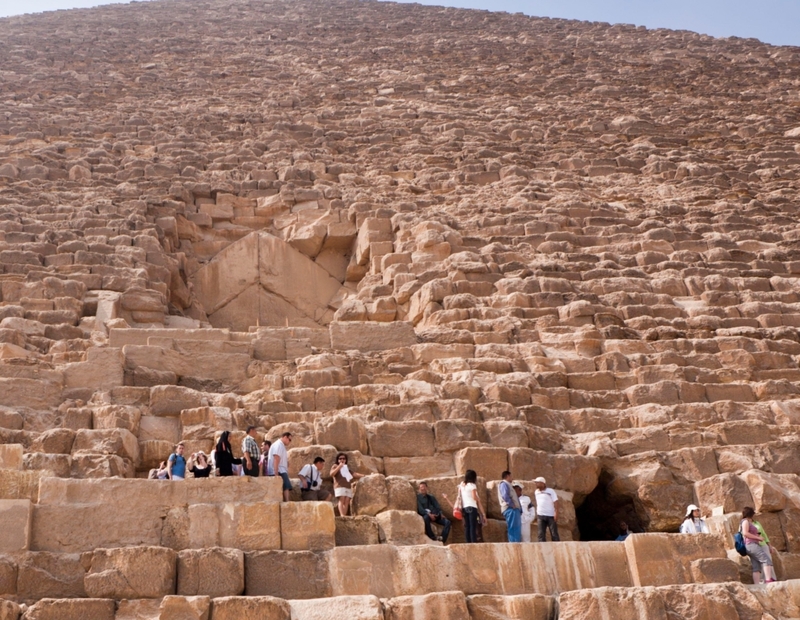
These doors were first discovered when the Great Pyramid was being explored in the 1800s, and it took very little effort to push the doors open from the inside. So, how did this ancient civilization manage to create such an impressive entryway with no technology whatsoever?
Are There Passages to the New Chamber?
One of the more intriguing findings was a new mysterious chamber called the “big void.” After all, it definitely is a void since the chamber is not connected to any passages inside the pyramid. So what was it for, and why did the Egyptians create a totally disconnected chamber? Scientists believe this chamber was built to relieve some of the weight and prevent the Grand Gallery from collapsing in.

Now, tourists can walk through the Grand Gallery if they hunch down through a long tunnel. The Grand Gallery is attached to the Queen’s chamber, which can also be visited. Overall, the new chamber is about equal in size to the Grand Gallery, and it sits directly above it.
Lined Up With Constellations
It would seem that the ancient Egyptians enjoyed aligning their constructions. It’s not only their shafts that were aligned with the stars. All three Pyramids of Giza are connected to outer space. The Khufu, Khafre, and Menkaure’s pyramids are aligned exactly with the famous Orion’s Belt stars. The pyramids are aligned with three stars Alnitak, Alnilam, and Mintaka.
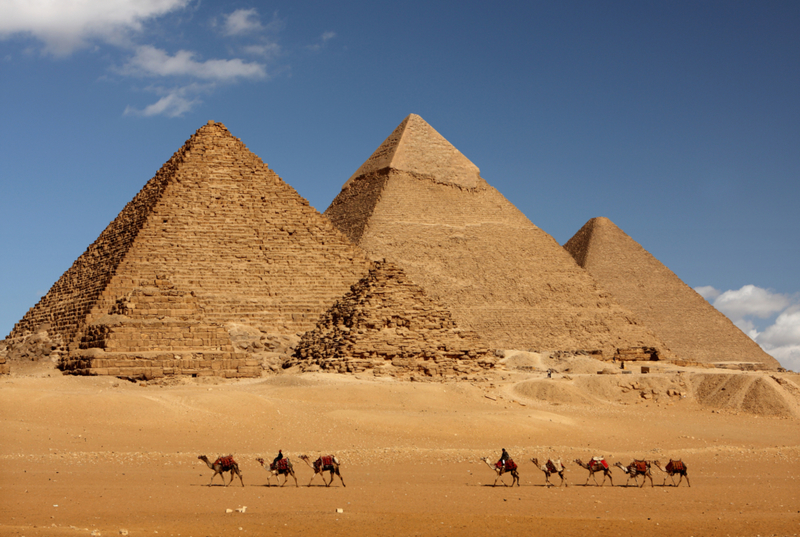
Like many ancient civilizations, the Egyptians studied the skies, taking measurements from the stars to accurately align their pyramids. But what is puzzling is that Orion’s Belt wasn’t discovered until 2000 years after the pyramids were built.
Did the Pyramids Have a Connection with the Sun?
There are those that believe the pyramids were built by aliens, while others hold the more sober approach that the pyramids were used as power plants. If these don't sound plausible, there is yet another speculation, one about the pyramids devoted to supporting their king's ascension to Sun Ra, the God of the Sun.
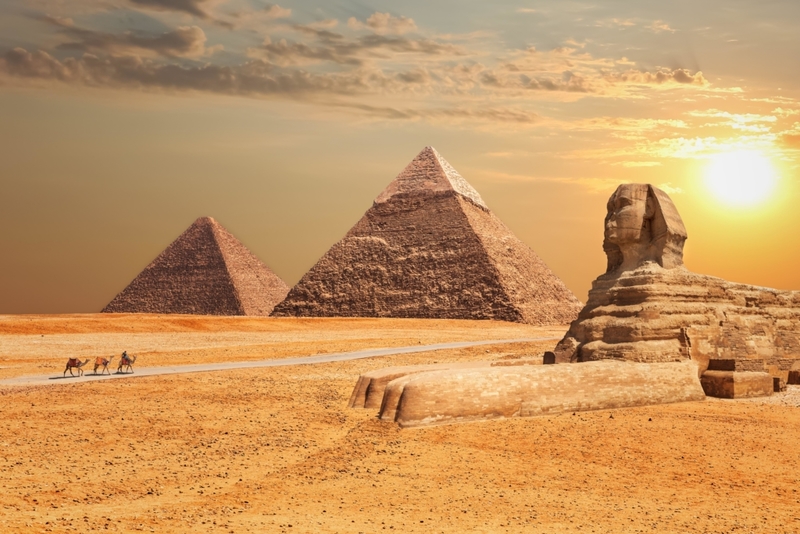
This kind of guidance to the afterlife could clarify why they wanted to align the pyramids with constellations and stars. And that could also be why they buried their kings with objects they could use in the afterlife.
Greater Precision Than the Royal Observatory
It is possible that the ancient Egyptians might have been more advanced than our civilization since their chambers point north with much better precision than the Royal Observatory in Greenwich. We’re not speaking about the general North but the specific direction towards the magnetic North.
- Questions and Answers
- Opinion
- Motivational and Inspiring Story
- Technology
- Live and Let live
- Focus
- Geopolitics
- Military-Arms/Equipment
- Security
- Economy
- Beasts of Nations
- Machine Tools-The “Mother Industry”
- Art
- Causes
- Crafts
- Dance
- Drinks
- Film/Movie
- Fitness
- Food
- Games
- Gardening
- Health
- Home
- Literature
- Music
- Networking
- Other
- Party
- Religion
- Shopping
- Sports
- Theater
- Health and Wellness
- News
- Culture

